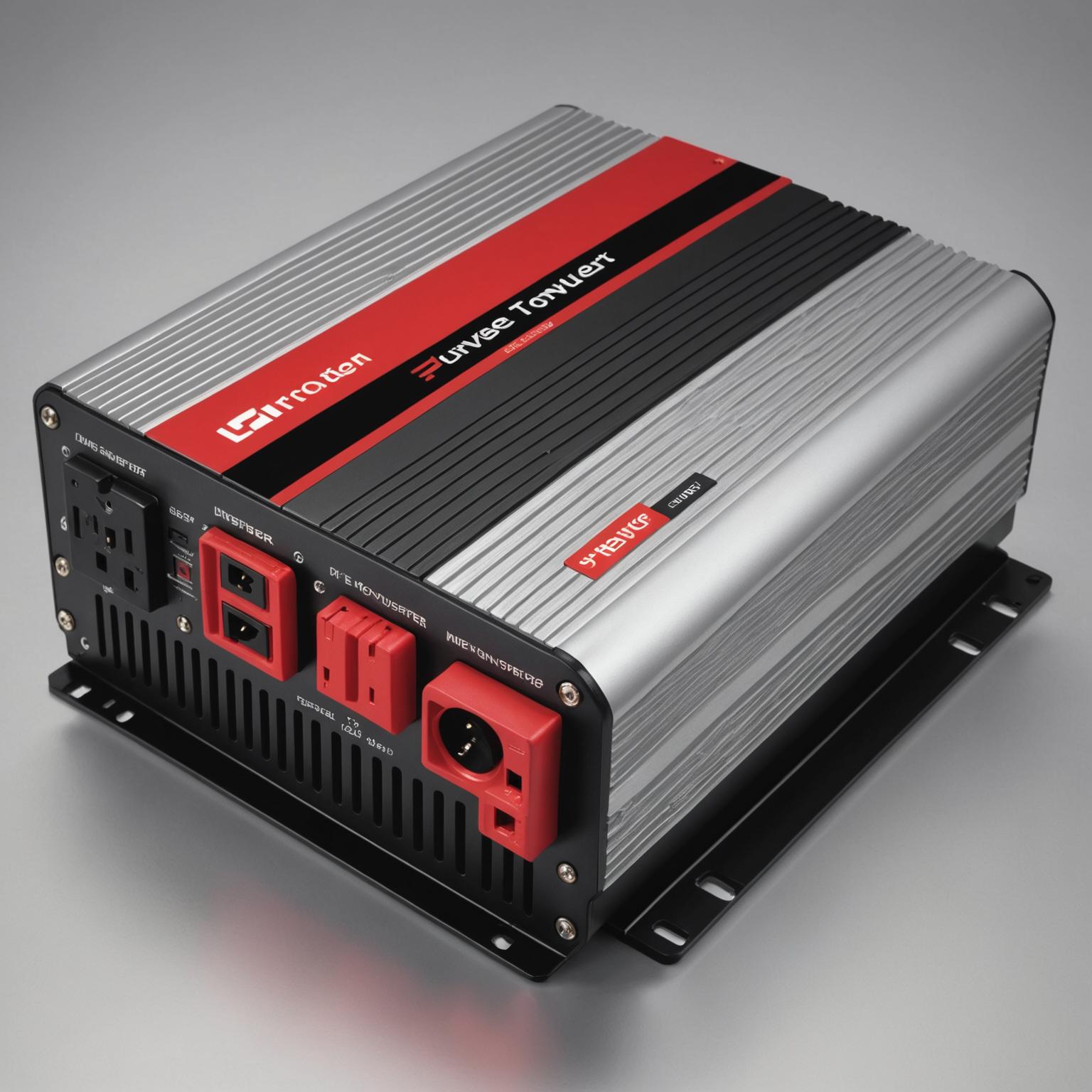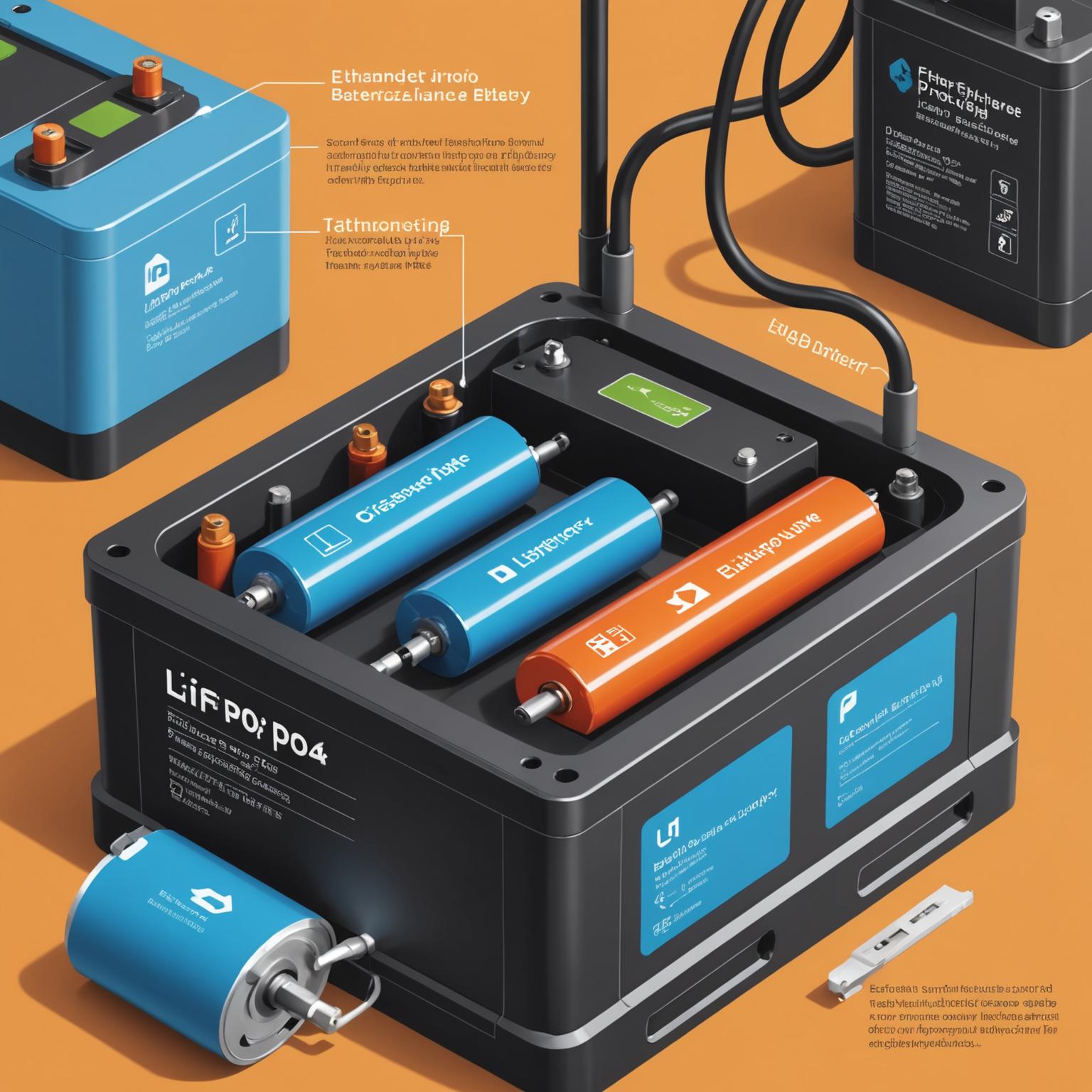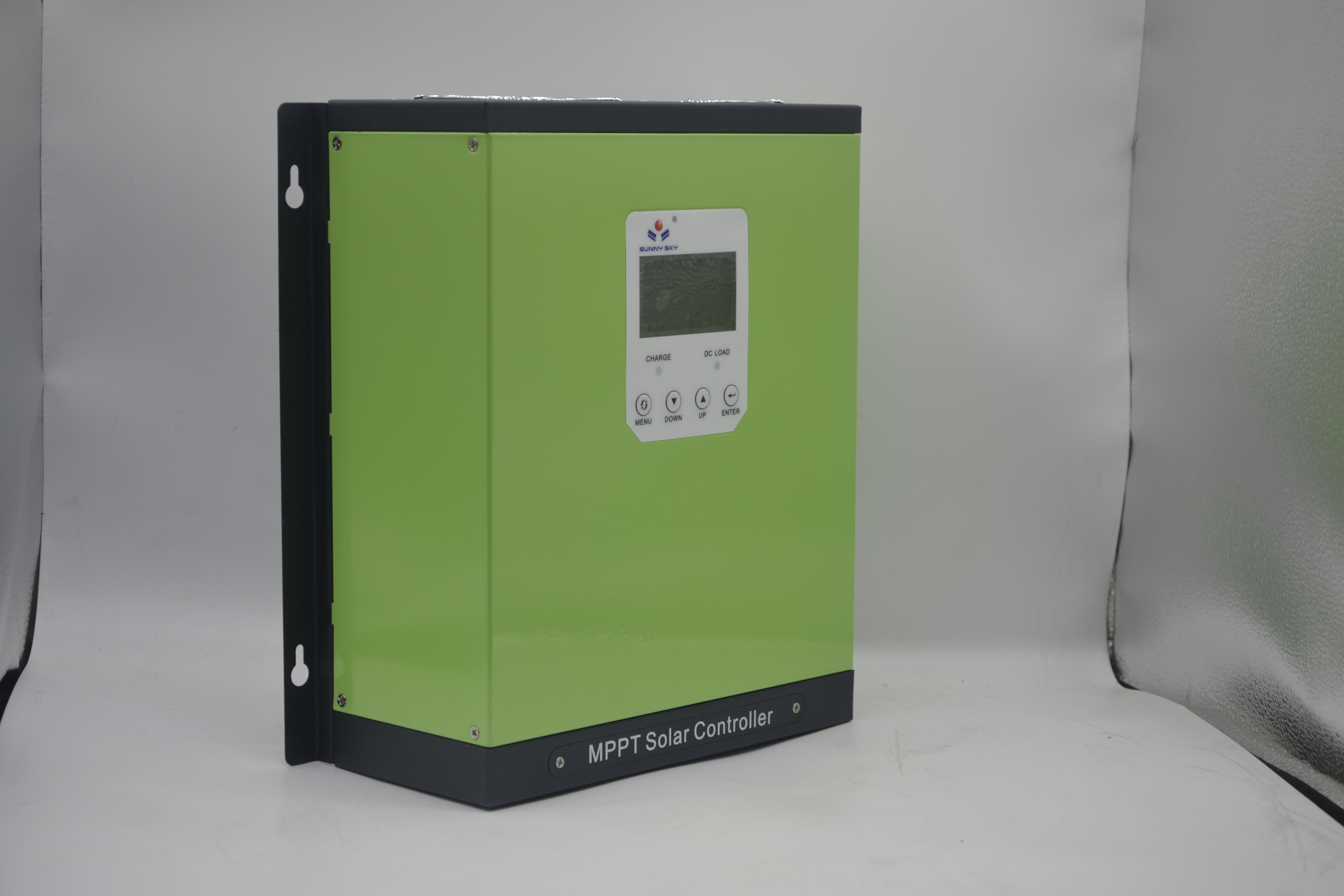In the rapidly evolving world of energy solutions, the quest for reliable, efficient, and long-lasting power storage is more critical than ever. Among the frontrunners in advanced battery technology, the LiFePO4 Battery has emerged as a compelling option for a diverse range of applications, from renewable energy systems to electric mobility. Its unique combination of safety, longevity, and performance is reshaping how we store and utilize energy, promising a more sustainable and dependable power future.
Understanding the Lithium Iron Phosphate Battery
At its core, a Lithium Iron Phosphate Battery, often referred to by its chemical formula LiFePO4, is a type of rechargeable lithium-ion battery. What sets it apart from other lithium-ion chemistries, such as lithium cobalt oxide (LCO) or lithium manganese oxide (LMO), is its use of lithium iron phosphate (LiFePO4) as the cathode material and a graphitic carbon electrode with a metallic backing as the anode. This specific chemistry contributes to its renowned stability and safety, offering an alternative that addresses many of the limitations found in older battery technologies. The iron phosphate compound is inherently safer and more stable than cobalt or manganese oxides, making it less prone to thermal runaway, even under duress such as overcharging or short-circuiting.
Key LiFePO4 Battery Advantages Making a Difference
The widespread adoption of this technology is largely driven by significant LiFePO4 Battery advantages. These benefits are not merely incremental improvements but represent substantial advancements in energy storage. Users benefit from an exceptionally long cycle life, often exceeding several thousand charge-discharge cycles while retaining a high percentage of their original capacity. This longevity translates to a lower total cost of ownership over the battery's lifespan, making it an economically sound investment. Furthermore, they exhibit excellent thermal stability, reducing the risk of overheating and enhancing overall safety, a critical factor in both consumer and industrial applications. The consistent power output and high discharge rates also mean they can power demanding appliances and systems effectively. Indeed, understanding these core LiFePO4 Battery advantages is key to appreciating their growing dominance in various sectors.
Enhanced Safety Profile of LiFePO4 Chemistry
Safety is paramount in any energy storage system, and this is where the LiFePO4 Battery truly shines. The chemical structure of lithium iron phosphate is more robust and less susceptible to thermal runaway compared to other lithium-ion variants. The P-O bond in the (PO4)3- anion is very strong, which makes it difficult for oxygen to be released during overcharge or high-temperature conditions. This inherent stability means that LiFePO4 batteries are less likely to combust or explode if mishandled, punctured, or subjected to extreme conditions. This superior safety profile makes them particularly suitable for applications where safety is a non-negotiable priority, such as in residential energy storage, medical devices, and electric vehicles where passenger safety is critical. The reduced risk allows for simpler and less costly battery management systems (BMS) in some cases, although a BMS is still crucial for optimal performance and longevity.
Exceptional Lifespan and Cycle Stability
One of the most compelling attributes of a Lithium Iron Phosphate Battery is its exceptional cycle life. While traditional lead-acid batteries might last for a few hundred to perhaps a thousand cycles, and other lithium-ion types offer around 1000-2000 cycles, LiFePO4 batteries can typically endure 2,000 to 7,000 charge-discharge cycles, and some even up to 10,000 cycles depending on the depth of discharge (DoD), temperature, and charge rates. This remarkable durability means that a well-maintained LiFePO4 battery can last for many years, significantly reducing the frequency of replacements and the associated environmental impact of battery disposal. This long service life is crucial for applications requiring dependable long-term power, such as off-grid solar installations and large-scale energy storage projects, where reliability and reduced maintenance are key.
Performance Characteristics in Demanding Conditions
Beyond safety and lifespan, LiFePO4 batteries boast impressive performance characteristics. They maintain a relatively flat discharge voltage curve, meaning they deliver consistent power output throughout most of their discharge cycle. This is highly beneficial for electronics and motors that require a stable voltage supply. They also have a wide operating temperature range, performing reliably in both hot and cold environments where other battery types might struggle or degrade quickly. While extremely low temperatures can reduce performance, they generally fare better than many alternatives. Moreover, LiFePO4 cells can handle high charge and discharge rates, making them suitable for applications requiring rapid charging or a large burst of power, such as in power tools or engine starting. Their high efficiency, typically over 90% round-trip, means less energy is wasted during charging and discharging.
Diverse Applications of LiFePO4 Technology
The compelling LiFePO4 Battery advantages have led to their adoption across a wide spectrum of applications. In the recreational vehicle (RV) and marine sectors, they are prized for their lightweight nature, long life, and deep discharge capabilities, allowing for extended off-grid adventures. For solar energy storage, whether residential or commercial, LiFePO4 batteries provide a reliable way to store excess solar power generated during the day for use at night or during power outages, seamlessly integrating with solar panel systems. They are increasingly used in electric vehicles (EVs), especially in electric buses and commercial vehicles where safety and longevity are critical. Other applications include uninterruptible power supplies (UPS), electric bikes and scooters, portable power stations for outdoor activities, medical equipment, and various industrial uses. Their versatility ensures stable power for everything from small devices to large installations.
Pairing LiFePO4 Batteries with Efficient Power Systems
To fully harness the benefits of a LiFePO4 Battery, it's often paired with other components to create a comprehensive power system. Power inverters, for instance, are essential for converting the DC power stored in the battery to AC power, which is required by most household appliances and tools. High-quality inverters ensure efficient power conversion with minimal loss, protecting both the battery and connected devices. Companies like Guangzhou SunnySky Solar Equipment Co., Ltd, with their commitment to high-quality products and top-notch solar energy solutions, understand the importance of integrated systems. Their independent brand, recognized for stability and performance in over 50 countries, focuses on delivering reliable green energy. When choosing components for such systems, whether it's a 1000W Modified Sine Wave Power Inverter or other solar equipment, ensuring compatibility and quality is crucial for leveraging the full potential of advanced battery technologies and contributing to reduced energy consumption and carbon emissions.
Environmental Considerations and Sustainability
The environmental impact of batteries is an increasingly important consideration. Lithium Iron Phosphate Battery technology offers several environmental benefits compared to other battery types. Firstly, the materials used – iron and phosphate – are more abundant and less toxic than cobalt, which is commonly found in other lithium-ion chemistries and often associated with problematic mining practices. LiFePO4 batteries do not contain heavy metals like lead or cadmium, making their disposal less hazardous. Their significantly longer lifespan also means fewer batteries need to be produced and discarded over time, reducing overall resource consumption and waste. This focus on sustainability aligns with a global shift towards greener technologies and responsible energy use, making them a more environmentally conscious choice for energy storage.
Choosing and Maintaining Your Advanced Battery
When selecting an advanced iron phosphate battery, it's important to consider factors such as capacity (Ah), voltage (V), maximum continuous discharge current, and the quality of the Battery Management System (BMS). The BMS is crucial as it protects the battery from overcharge, over-discharge, over-current, and extreme temperatures, thereby ensuring safety and maximizing its lifespan. For maintenance, these batteries are relatively low-maintenance. They do not suffer from the 'memory effect' common in older nickel-based batteries, so they don't require periodic full discharge cycles. Storing them at a partial state of charge (around 50-60%) and in a cool, dry place is generally recommended for long-term storage. Always refer to the manufacturer's guidelines for specific care instructions to optimize performance and longevity.
The Future Outlook for LiFePO4 Technology
The future for Lithium Iron Phosphate battery technology looks exceptionally bright. Ongoing research and development efforts are focused on further improving energy density, reducing costs, and enhancing performance characteristics like cold-weather operation. As manufacturing scales up and technology matures, prices are expected to continue their downward trend, making these advanced batteries even more accessible for a wider range of applications. Their inherent safety and longevity make them a strong contender to become the dominant chemistry in stationary energy storage and for certain electric vehicle segments. The increasing global demand for renewable energy and electric mobility will undoubtedly fuel further innovation and adoption of this robust and reliable battery solution, contributing to a cleaner, more sustainable energy future.
Conclusion: Embracing Reliable and Green Energy
In summary, the benefits offered by lithium iron phosphate systems, from enhanced safety and impressive lifespan to stable performance and environmental advantages, make them an outstanding choice for modern energy storage needs. The clear LiFePO4 Battery advantages over many conventional battery types position them as a cornerstone technology for the transition towards more sustainable and reliable power solutions. Whether for personal use in an RV, for a home solar system, or in demanding industrial applications, a LiFePO4 Battery delivers consistent value and peace of mind. As companies like Guangzhou SunnySky Solar Equipment Co., Ltd continue to innovate and provide high-quality green energy solutions, the integration of advanced battery chemistries like this will play an increasingly vital role in shaping a future powered by clean, efficient, and dependable energy for all, helping individuals and businesses maximize social, economic, and environmental benefits.


